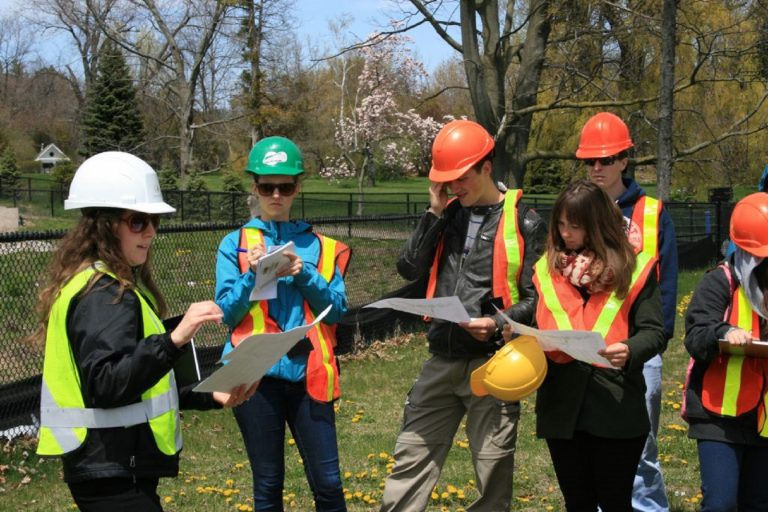
“When we reconnect with nature, we restore ourselves.”
– Lailah Gifty Akita, Think Great: Be Great!
The world’s forests face an unprecedented challenge as the human population continues to grow. Their biodiversity is the natural capital of our planet, providing a critical buffer against climate change as well as key components for human existence. Clean air and water, carbon sequestration, biodiversity, biomaterials, and bioenergy, all will be lost if deforestation, degradation, and habitat loss are allowed to continue at this alarming rate.
Rapid urban expansion, industrial globalization, and agricultural intensification threaten the sustainability of global forests and demand our immediate action. As some of the most complex ecosystems on earth, their proper management is essential if we are to retain integrity for future generations, be it in the remote forests of Canada, Brazil, and Russia, or the shade trees of our most liveable cities.
“Unless we change the present system that rewards forest destruction, forest clearing will put another 200 billion tons of carbon into the atmosphere in coming decades….Any realistic plan to reduce global warming pollution sufficiently – and in time – to avoid dangerous consequences must rely in part on preserving …forests” WWF; Zoological Society of London (2014)
One institution doing its utmost to conserve the world’s forests is the University of Toronto (UofT) – Canada’s leading higher education provider, founded in 1827. As an international, top research-intensive institution, UofT is driven to inspire and innovate, consistently producing graduates who go on to make positive changes in the world.

Image courtesy of the University of Toronto, Faculty of Forestry
As Canada’s largest city and sixth-largest government, with a vibrant population of around 2.6 million people, Toronto is known to be one of the world’s most diverse student cities. Consistently ranked within the top 10 of the world’s 100 best-loved cities, UofT does not just represent an investment in elite academics, it also represents an unparalleled investment in an unforgettable study abroad experience.
UofT’s Faculty of Forestry is dedicated to the study of conservation science and the teaching of ecosystem management. Through a unique, integrative, applied and passionate approach to student learning, the Faculty is helping to manage competing demands placed on Ontario’s, Canada’s, and the world’s forests in terms of social and environmental change.
“Although small in size, [the Faculty of Forestry] is a leader in bioresource sustainability and conservation,” says Mohini M Sain, Dean and Professor for the Faculty. “It has embarked on a journey of remarkable growth in global ecological, industrial and social fronts; it’s amazingly creative in harnessing the convergence of disciplines; remarkably unique in intellectual capacity, demography and cultural diversity; and rooted in a mega-urban melting pot to serve the globe with non-traditional yet highly rewarding opportunities.”
“The Faculty’s ground-breaking Master of Forest Conservation (MFC) program empowers students to make a difference in our natural environment. From policies and practices that profoundly impact all living organisms, to the intricate science that allows forest life to thrive, to the sustainability of human social and economic systems, UofT’s MFC is focused on the wellbeing of our society and the health of our planet.

Image courtesy of the University of Toronto, Faculty of Forestry
Recognized by the Canadian Forestry Accreditation Board, the program ensures that those who wish to enter the professional sphere are fully equipped with the competencies needed to succeed in the practice of professional forestry. In the course of this 16-month experience – which also offers flexible two-year and part-time enrollment – students investigate far-reaching aspects of forest conservation – including sustainable forest management, urban forestry, forest economics, forest governance and policy, forest and wildlife conservation biology, and silviculture.
A stand-out feature of the MFC lies in the opportunity for students to gain invaluable real-world experience, with a three-month integrated internship giving them an in-depth taste of professional conservation long before they graduate. The Faculty’s extensive network of industry partners means that students are conveniently placed within their ideal roles, allowing them to hone their aspirations and define their dream career route. Former MFC students have secured positions with leading industry players, government organizations, and environmental NGOs.
“My internship with the New York City Department of Parks and Recreation gave me the opportunity to gain real-world work experience in urban forestry and aboriculture,” says Amory Ngan, a recent MFC student. “It allowed me to apply the newly-acquired knowledge and skills from the MFC program to address real-time needs and challenges. I got the chance to learn from some of the leading professionals in the field, and experience first-hand the challenges in urban forestry,” he adds.
“The internship is absolutely integral to the MFC program, and allowed me to expand my network and contacts and gave me a competitive edge in advancing my career.” It also landed Amory a job with the same organization.

Image courtesy of the University of Toronto, Faculty of Forestry
On top of world-class teaching and unrivalled experiential learning options, UofT’s MFC students benefit from global exposure, a factor that leaves them highly-employable on an international scale. Former students have pursued field course options in Malaysia, Brazil, the U.S., Scandinavia, China and Spain. Not only do these two-to-three-week courses allow students to gain a universal perspective on conservation issues, they also instil students with first-hand experience of living in different communities and cultures – an incredibly desirable asset when it comes to recruitment in a competitive graduate market.
Through cross-sectoral relationships established by UofT, MFC students are consistently exposed to the most influential figures in conservation, giving them the chance to be recognized by people who matter most. For those who are committed to the preservation of forest land, who are looking to heal and protect the natural beauty we have left, there’s no greater promise of tangible change than the light of a career at the end of the graduate tunnel.
Follow UofT’s Faculty of Forestry on Facebook, Twitter and YouTube
Liked this? Then you’ll love these…
Why Liverpool University is monitoring volcanoes around the world
The phenomenal demand for Environment, Agriculture and Natural Resources graduates in the USA







